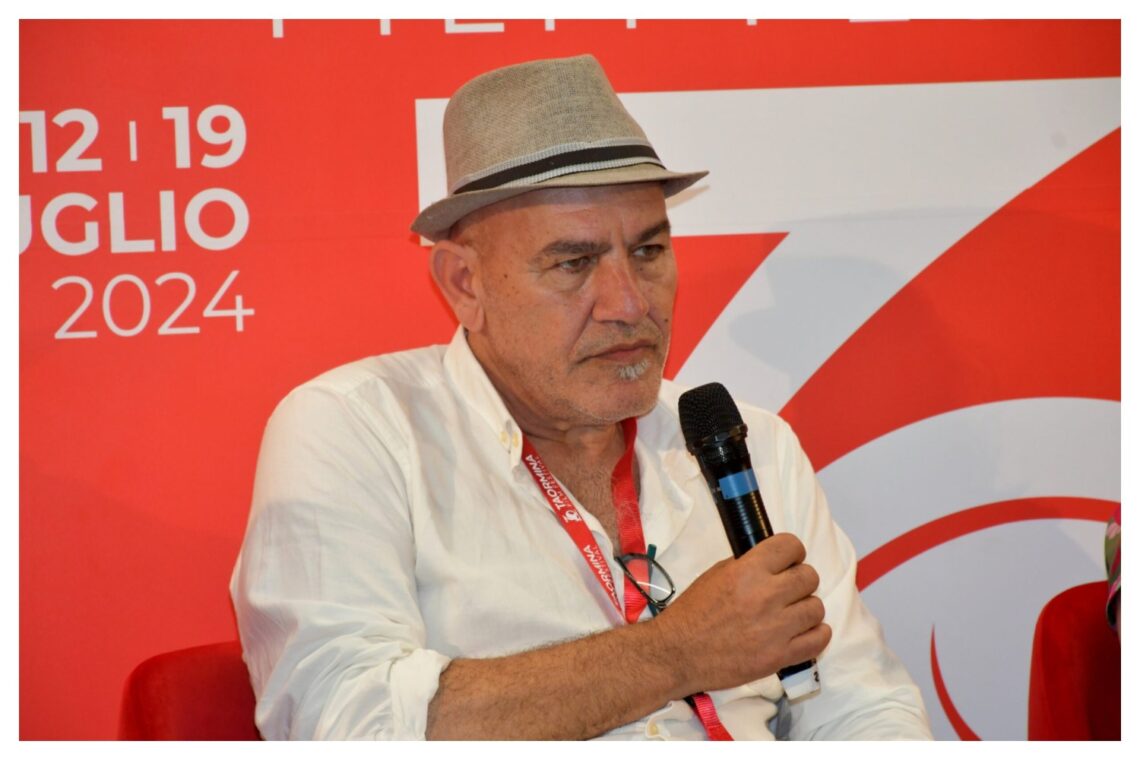The power of cinema in conflict zones: Rashid Masharawi’s “From Ground Zero”
A unique perspective from the Taormina Film Festival
At the Taormina Film Festival, Palestinian film director Rashid Masharawi presented a groundbreaking compilation titled “From Ground Zero.” This collection of 22 short films, shot by filmmakers inside the Gaza Strip during the ongoing conflict, offers a raw and unfiltered glimpse into life under siege. Masharawi’s initiative is not just a cinematic endeavor but a profound act of resistance and storytelling.
Rashid Masharawi: A voice from Gaza
“I was born and grew up in Gaza,” Masharawi shared in an interview with Variety. “I made many films in Gaza as a director and producer, and this time after I saw all what’s going on, I said, ‘No, I am not going to make a film. Instead, I’m going to give the chance to the Palestinian filmmakers, and filmmakers who are in Gaza now, sharing what’s going on with the people.'”
This decision underscores Masharawi’s commitment to empowering local voices. By focusing on untold personal stories and providing technical training, he aims to elevate these filmmakers’ work to international platforms.
The logistical nightmare of filmmaking in Gaza
Creating ”From Ground Zero” was fraught with challenges. Collaborating with French production company Coorigine Productions and producer Laura Nikolov, Masharawi navigated the complexities of coordinating with filmmakers in Gaza, receiving footage, and supervising post-production.
“It was one of our main problems to get out the material from Gaza and also to have contact all the time with the filmmakers,” Masharawi explained. “Even if we talk through internet, through social media, Facebook, WhatsApp, all these things. But once you have no electricity to charge your mobile, you have nothing.”
The team often worked around the clock, seizing brief windows of electricity and internet access to upload material to France. The final film arrived just two weeks before the festival.
The artistic and technical challenges
Incorporating 22 films into a cohesive work posed significant editing challenges. “No one shoots with the same camera, with the same setup; the sound is different,” Masharawi noted. This diversity, however, adds to the film’s authenticity and richness.
One of the shorts, “Sorry Cinema,” poignantly addresses the limits of creating art in such dire conditions. “This is one of the films I have a special relation with,” Masharawi said. “You spend your life thinking that cinema is your priority in life. And suddenly, no, it’s not. You need to eat; save your family. Humans are more important than cinema.”
The role of cinema in conflict
Masharawi’s reflections on the role of cinema are deeply moving. ”We make films to make life better, to make life easier, to make it more understood. To make humans feel better,” he said. “This film describes this element very well because the director is in a situation that he needs to choose between life and cinema, and he chose life.”
For Masharawi, cinema is not just a reaction to conflict but an action. “I started to make cinema inside the Palestinian occupied territories more than 30 years ago,” he said. “I need to protect cinema from the Israeli occupation. Cinema must be not only a reaction; it should be an action. Palestinians, we are a nation. We have history, language, we have music, colors, food: we have many things which belong to us. All these things can be a strong ground to make cinema.”
A reflective closure
“From Ground Zero” is more than a film; it is a testament to the resilience and creativity of Palestinian filmmakers. It challenges us to reconsider the role of art in times of crisis and the power of storytelling to bridge divides. As we reflect on Masharawi’s words and the stories from Gaza, we are reminded of the enduring human spirit and the transformative power of cinema.
For those interested in exploring this powerful compilation, you can watch the trailer and find more information at https://trailers.movieetv.com/search/from-ground-zero.

 Italian
Italian







